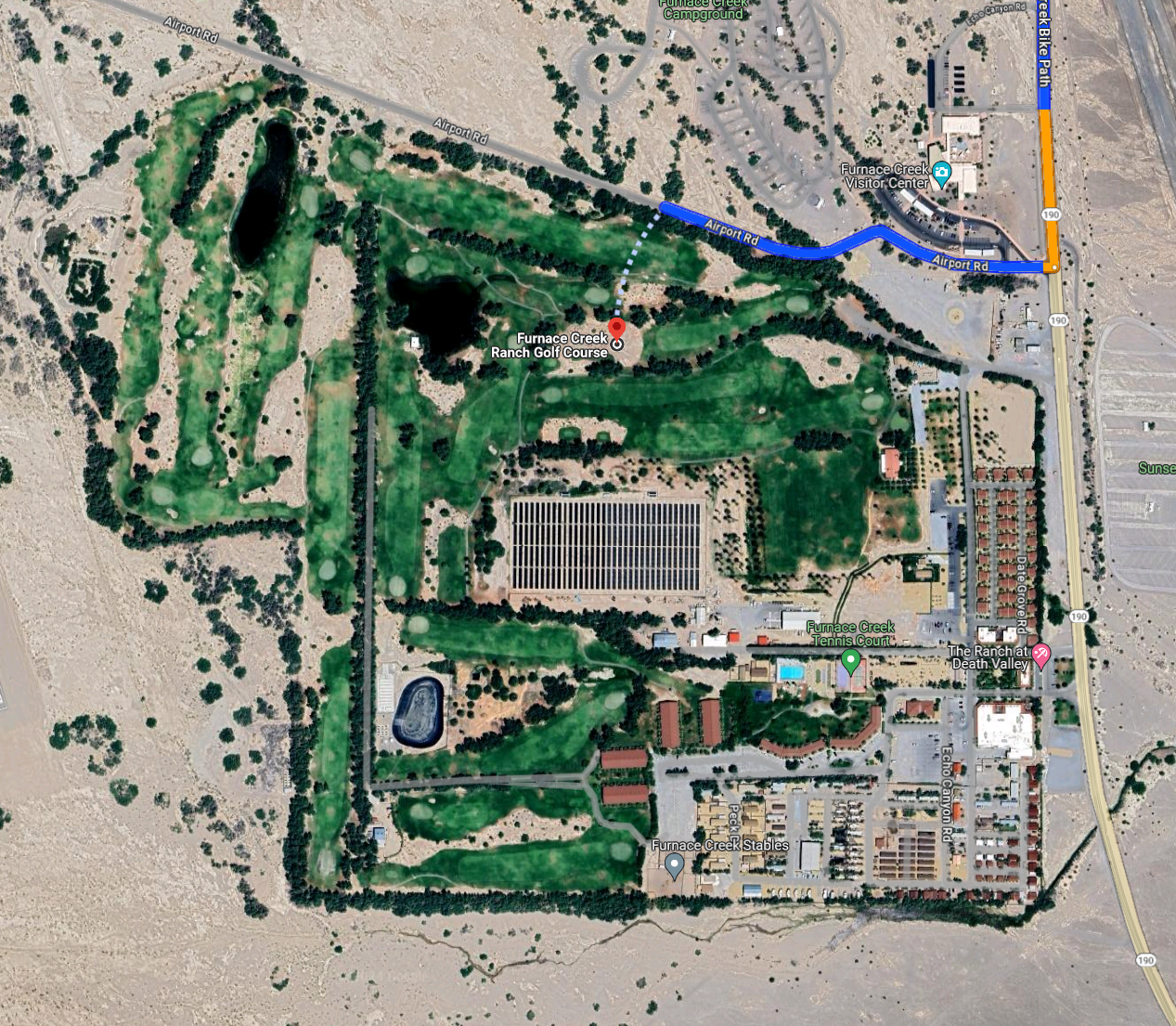It opened in 1931 and underwent a major renovation in 1997. Apparently, the water usage is sustainable (see below), but it still doesn’t excuse the fact, in my mind, that continuing to support the upkeep of a green-ass golf course at the edge of Death Valley shows how out-of-whack its patrons are with the changing climate.
“In an area as hot and dry as Death Valley, balancing water usage with conservation requires significant planning. Furnace Creek and its namesake resort exist in their location because natural spring water flows from nearby mountain ranges to create an oasis. By routing the water from one point to others, the resort’s goal is to use the same molecules of water for several purposes. The spring-fed water is first used at the Inn to irrigate gardens and supply the swimming pool which was designed with a flow-through system that minimizes chemical use. That water then continues downhill to the Ranch where it fills the ponds on the golf course, providing habitat for local and migratory wildlife. The water in the ponds then irrigates the golf course.” - How Xanterra’s Furnace Creek Resort is Sustainable, greenlodgingnews.com



If its irrigated from a natural spring then wouldn’t that water is coming out of the ground and will shortly evaporate in Death Valley whether there is a golf course there or not?
Are you suggesting capturing the spring water and hauling it out of Death Valley for some reason? Are you proposing something else for the water?
Desert ecosystems do exist. I guarantee you the water was not just being wasted. If nothing else there’s the aquifers and those are getting drawn down pretty fast these days. Anyone capturing water in the Southwest is contributing to the water crisis there.